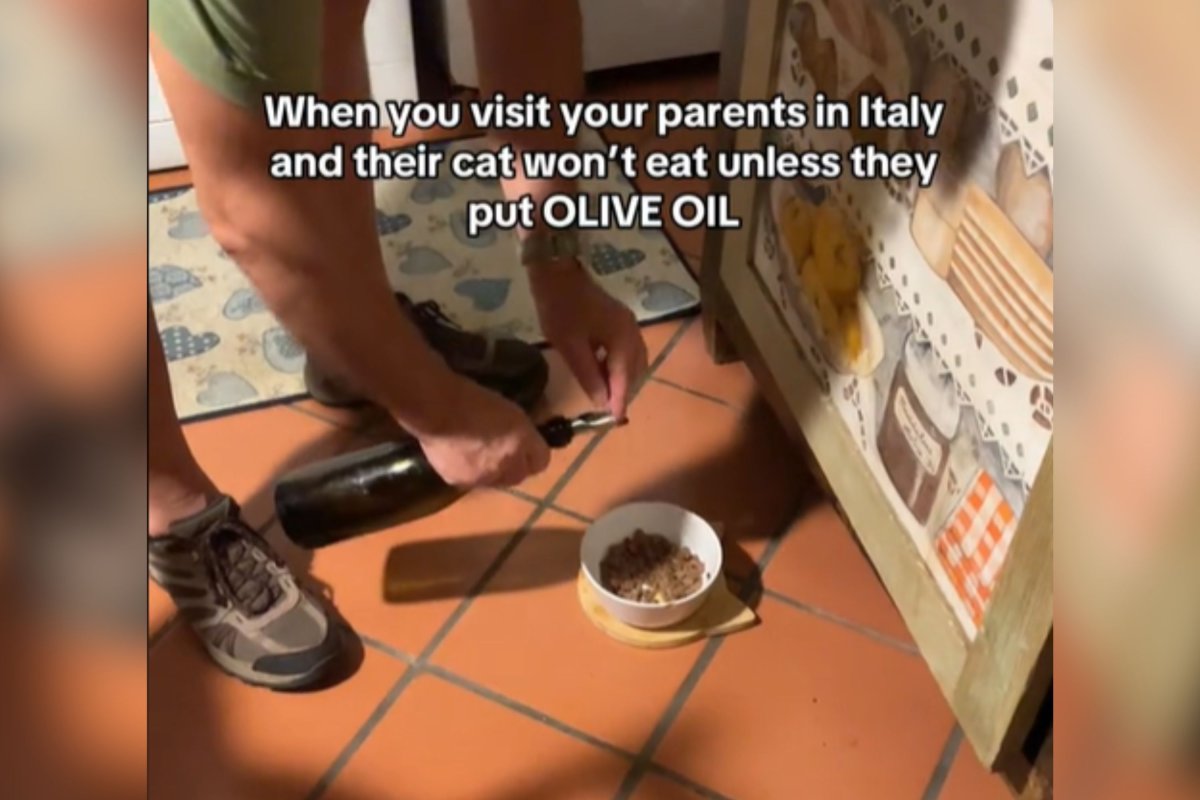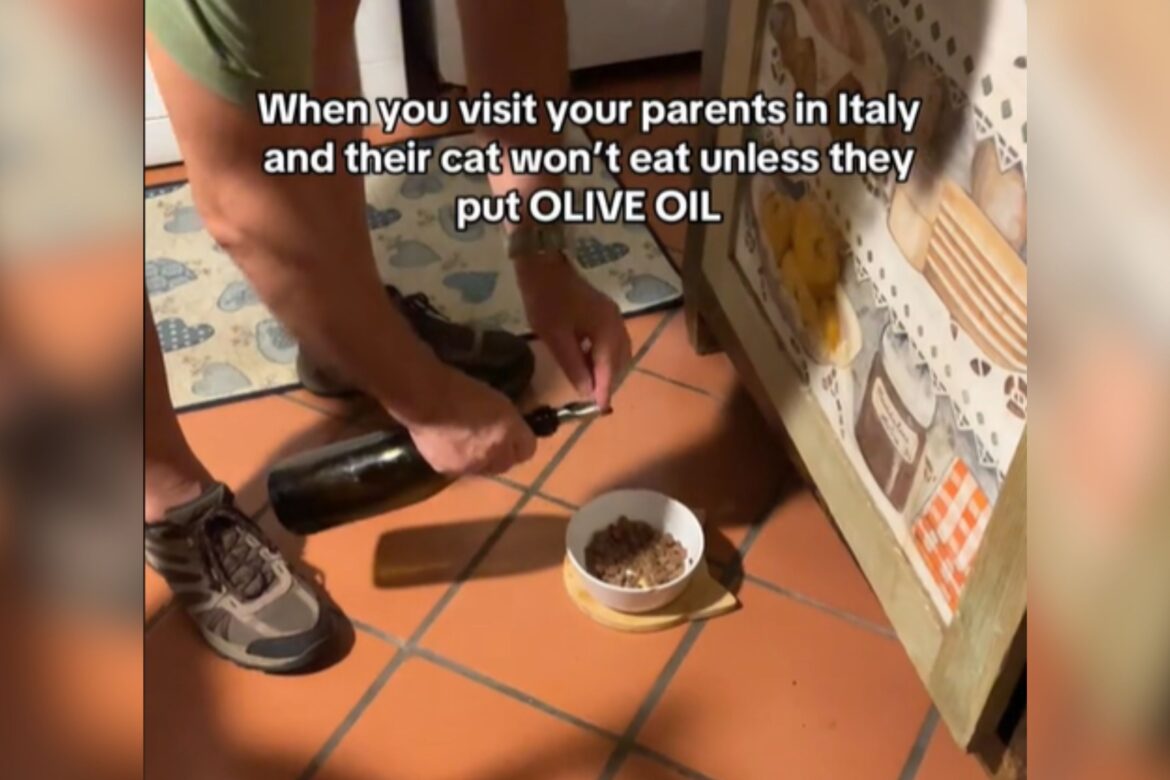A cat’s demand for a specific topping on his food has left viewers in stitches.
TikTok user @imacheesecakenyc was visiting her parents in Italy when she noticed them adding olive oil to the cat’s food. Not a typical additive owners will use, Margherita was slightly confused and asked them why.
Their orange cat wasn’t eating his dry food and needing to improvise, they tried adding olive oil. The rest is history. He now refuses to eat his food unless it is topped with a drizzle of sweet oily goodness.
Margherita shared a September 9 TikTok about the cat’s demands. In the video, her dad is bending down to the cat bowl with a bottle of olive oil. He put his finger on the spout, ensuring not too much comes out. Meanwhile, the cat didn’t bother looking at the food. He walked away embarrassed it wasn’t to his standards.

Screenshot from a September 9 TikTok video of an owner adding olive oil to the cat’s dry food. The cat refuses to eat unless it has olive oil on it.
Screenshot from a September 9 TikTok video of an owner adding olive oil to the cat’s dry food. The cat refuses to eat unless it has olive oil on it.
@imacheesecakenyc/TikTok
And it’s not just any olive oil that her parents will use. She wrote in the comment section that it’s homemade olive oil. The “little prince” won’t settle for anything store-bought.
Newsweek reached out to @imacheesecakenyc via TikTok for additional comment.
Cracking up over the cat’s demands, viewers started calling him a “cultured kitty” and “fancy little one.”
“The cat has Italy in its soul,” said a TikTok user.
Another added: “Meow your Standards.”
Is Olive Oil Safe for Cats?
Owners might have noticed their cats show particular interest when opening a can of olives or using olive oil. Hill’s Pets reported this could be because olives, particularly green olives, contain an active chemical compound similar to the one found in catnip. This compound, nepetalactone, is believed to be linked to how a cat reacts to the herb.
Olives and olive oil are not considered poisonous to cats, however, their intake of the two should be limited. Olives are known to be high in sodium and should be thought of as an “empty calorie treat.” It is especially not a good treat if your cat has heart or kidney disease. Olive oil is purely fat and while not poisonous, consuming too much might lead to diarrhea or vomiting in cats.
On the flip side, an article from CatTime highlighted the benefits of olive oil when incorporated into a cat’s diet. It can improve the immune system, act as a natural remedy for constipation and promote healthy skin and fur. Olive oil also helps fend off diabetes and other cardiovascular ailments in cats.
Do you have funny and adorable videos or pictures of your pet you want to share? Send them to life@newsweek.com with some details about your best friend and they could appear in our Pet of the Week lineup.

